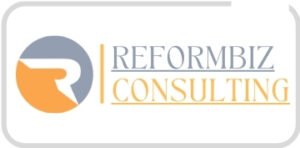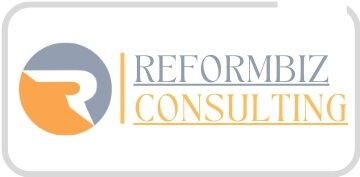LABOUR COMPLAINCE
Navigating Labor Compliance: Ensuring Fair Practices in the Workplace
In today’s complex business environment, labor compliance has become a critical focus for organizations striving to maintain ethical practices and avoid legal pitfalls. Understanding and adhering to labor laws not only protects your business from penalties but also fosters a positive workplace culture. This blog will explore the significance of labor compliance, the key regulations to consider, and best practices for ensuring compliance in your organization.
Labor compliance refers to the adherence to various laws and regulations that govern the workplace, ensuring that employees are treated fairly and that their rights are protected. These laws cover a broad spectrum of areas, including wage and hour regulations, workplace safety, discrimination, benefits, and more.
1. Wage and Hour Laws
Employers must adhere to regulations regarding minimum wage, overtime pay, and proper record-keeping. It is essential to ensure that employees are compensated fairly and that pay practices comply with federal and state laws.
2. Health and Safety Regulations
The Occupational Safety and Health Administration (OSHA) sets standards to ensure safe working conditions. Employers are responsible for maintaining a safe workplace and providing necessary training and resources to protect employees.
3. Anti-Discrimination Laws
Federal and state laws prohibit discrimination based on race, gender, age, disability, and other factors. Employers must implement policies that promote diversity and prevent harassment, ensuring an inclusive workplace for all employees.
4. Employee Benefits and Rights
Compliance extends to benefits such as health insurance, retirement plans, and family leave. Organizations must communicate employee rights clearly and ensure compliance with laws like the Family and Medical Leave Act (FMLA).
5. Recordkeeping Requirements
Maintaining accurate records is essential for compliance. This includes documentation related to hiring, payroll, employee benefits, and safety training. Proper recordkeeping helps organizations defend against potential claims and audits.
1. Avoiding Legal Penalties
Non-compliance with labor laws can lead to significant legal repercussions, including fines, lawsuits, and damage to your organization’s reputation. Understanding and adhering to these laws helps mitigate risks and ensures your organization operates within the legal framework.
2. Fostering a Positive Workplace Culture
Compliance promotes a culture of fairness and respect. When employees feel protected and valued, it leads to higher morale, increased engagement, and lower turnover rates. A positive workplace culture attracts talent and enhances overall productivity.
3. Building Trust and Reputation
Organizations that prioritize labor compliance build trust with employees, stakeholders, and the public. A strong reputation for ethical practices can differentiate your organization in a competitive market, making it more appealing to potential employees and customers.
4. Improving Employee Performance
A compliant workplace often leads to higher employee satisfaction, which directly correlates with improved performance and productivity. When employees feel secure and valued, they are more likely to contribute positively to the organization’s goals.
1. Stay Informed
Labor laws are subject to frequent changes. Regularly update your knowledge of federal, state, and local regulations that affect your business. Subscribe to industry newsletters, attend seminars, and consult legal experts when necessary.
2. Develop Clear Policies
Create comprehensive employee handbooks that outline your organization’s policies on wages, benefits, discrimination, and workplace safety. Ensure all employees are aware of these policies and understand their rights.
3. Conduct Regular Audits
Perform regular compliance audits to identify potential risks and gaps in your practices. Assess your HR policies, payroll systems, and safety protocols to ensure they align with current regulations.
4. Provide Training
Regular training for management and employees on compliance-related topics is crucial. This includes understanding anti-discrimination policies, safety regulations, and proper payroll procedures.
5. Establish Reporting Mechanisms
Create clear channels for employees to report concerns or violations. Ensure that employees feel safe coming forward without fear of retaliation, and address issues promptly.
6. Seek Legal Guidance
Consult with legal experts or HR consultants to navigate complex labor laws and ensure that your practices are compliant. They can provide tailored guidance based on your organization’s specific needs.
Labor compliance is not just a legal obligation; it is fundamental to creating a fair, respectful, and productive workplace. By prioritizing compliance, organizations can protect themselves from legal risks, foster a positive culture, and enhance employee satisfaction. Regularly reviewing policies, staying informed about regulatory changes, and investing in employee training are key steps to ensuring compliance. Embrace labor compliance as an integral part of your business strategy, and set the stage for long-term success in today’s dynamic environment.
How we Work
Sales Meeting
We identify the pain points of the customer and collect data to understand the scope of work
Proposal Meetup
We make customized proposals for customers based on their specific needs, taking into consideration of all Govt Rules and Regulations.
Kick-off Meeting
Value to customer is shown post final proposal along with scope of work and timelines.
Customer Onboarding
A dedicated Relationship Manager is given to customer to receive all relevant services along with proof of Value accrual
Building Compliant Culture with Reformbiz Consulting PVT.LTD
We make sure that your organization has a culture of being compliant to all labor laws so that the employee feels valuable
Frequently Asked Questions
There are major questions that come to mind when we discuss labor compliances

